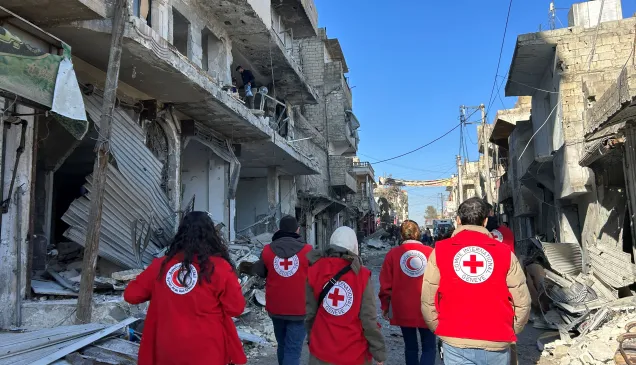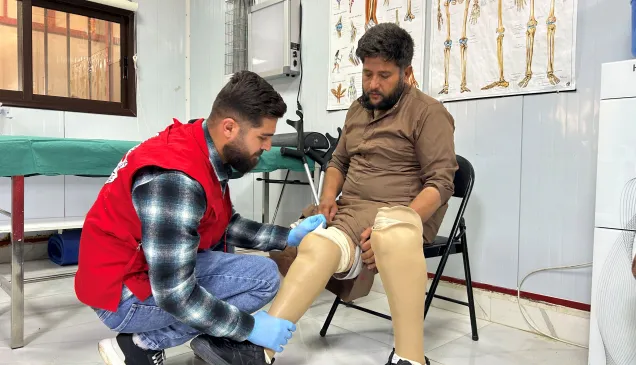Syria: Twinning the Judiciary and Forensic to Address Complex Humanitarian Challenges

In a significant step towards enhancing Syria's medicolegal system, the International Committee of the Red Cross (ICRC) recently partnered with the General Commission of Forensic Medicine of the Syrian Arab Republic to conduct the first "Judicial Forensic Conference in the country from 12th to 14th August 2024 in the city of Aleppo, followed by a one-day workshop.
This event, held in collaboration with the Ministry of Justice and the Ministry of Health, brought together 90 judges and forensic doctors, creating an essential platform for dialogue and advancement in forensic science within the country.
The conference was a rare opportunity to elevate the role of the forensic system in both humanitarian and judicial contexts. The discussions focused on strengthening cooperation between forensic and judicial systems and emphasizing the critical role of forensic science in humanitarian action. Over two days, participants engaged in comprehensive discussions, exploring various proposals, recommendations, and lectures aimed at advancing forensic science in Syria. The exchange between forensic and judicial sectors during the conference highlighted the importance of forensic expertise, the creation of new specialties as forensic archelogy, anthropology, the development of rules and standard operational procedures and the necessary coordination and cooperation among the different institutions involved in the process to address the complex challenges posed by conflict, disasters, and migration.
Over the past eight years, the partnership between the ICRC and the General Commission of Forensic Medicine has been aiming at shaping the country’s approach to medicolegal issues. This collaboration is rooted in a commitment to better address the needs of the deceased persons by ensuring that rules, operational standards, and proper coordination are in place to ensure that they are treated with respect and dignity. In situations of conflict, disaster, or migration, the search for, recovery and identification of the deceased persons are not only legal obligations but also humanitarian imperatives. Forensic science provides the tools and expertise necessary to contribute to bringing closure to families and upholding the dignity of those who have lost their lives.
“We remain committed to supporting medicolegal systems in their efforts to incorporate forensic humanitarian action into their work. It is essential to ensure that every deceased person is treated with dignity and given a name, allowing families to properly grieve and honor their loved ones in accordance with their cultural and religious traditions.”
- said Dina Alejandra Jimenez, the ICRC Forensic Coordinator in Syria
Events like the Judicial Forensic Conference are important steps aimed at developing a sustainable, well-established, and effective system for managing forensic issues, particularly during conflict, and in the aftermath migration and disaster. The conference underscored the need for a robust medicolegal framework that can respond to the complex demands during conflict and early recovery phases, ensuring that forensic practices are integrated into broader humanitarian efforts.
The conference concluded on August 14 with a workshop dedicated to the critical issue of human identification. This workshop was attended by heads of forensic centers in Syria, forensic experts from Identification Centers, representative of the Military Forensic System and members of the judicial system. The primary goal was to discuss humanitarian concerns related to the deceased persons and their families, focusing on the need to provide answers about the fate of loved ones. The development of recommendations for identifying the deceased persons was a central outcome of the workshop, highlighting the indispensable role that forensic science plays in close communication and coordination with the police, justice system and other key actors.
This conference represents an important moment in the ongoing efforts to strengthen Syria’s medicolegal system. It demonstrates the vital role of forensic science in both judicial processes and humanitarian efforts, with the aim to better equip the country to handle the complex challenges posed by conflict, migration and disaster. Through such events, the ICRC and its partners are committed to ensuring that Syria develops the capacity to ensure the dignity of the dead, to identify the deceased persons and to give answers to their families.



